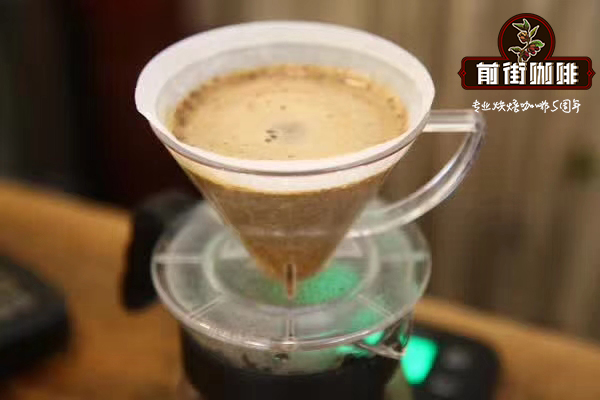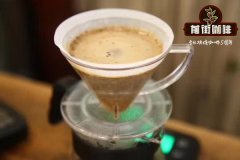WBC Coffee, Olive Coffee, Coffee Bean, Olive Coffee, Olive Coffee, Coffee, Olive, Coffee, Olive, Olive, O

Professional Coffee knowledge Exchange more information about coffee beans Please note the coffee workshop (Wechat account cafe_style)
Qianjie-2017 WBC Champion Vado Olive
What's the taste of SL28 beans in the new season, which was once the champion of WBC in 2017? Let's get to know something about it with Xiao Wei.
Finca Montes El Corozo
The olives of Waldo, the olives, the olives, the olives.
Oysters: olives and olives
Altitude: 1800-1950m
Variety: Kenny SL28
Treatment: washing
Level: SHB
[olive cups]
Olive oysters began to grow coffee in 1930, which is known as the "LOS VOLCANES" (volcano group) country official in Tuvaldo. There are rare volcanic flowers around the farm, and there are wild animals such as deer, raccoons, mountain birds and so on, which make it a very interesting wild animal.
Because it is located on the volcano, it is a very rare volcanic land. In 2006, when the Ilamapepec volcano erupted, the volcanic ash was covered directly on the mountain, but then the coffee was damaged, and the fertile environment became even more fertile a few years later because of the fertile volcanic soil.
Olive grain has been a fully mechanized farm since 2016, with rainforest certification. Coffee production is managed in traditional factories, washed with clean water and dried in clay courtyards.
Olive oysters are planted in a way that has been handed down for a hundred years. Ingas, grapefruit and olive trees are used as shelter, and more than 75 kinds of cross-shading are used to form a natural forest and coffee coffee. And the nourishment of this volcanic soil makes this beautiful coffee bar.
Olive grain has been a fully mechanized farm since 2016, with rainforest certification. Coffee production is managed in traditional factories, washed with clean water and dried in clay courtyards.
Variety
Kenny SL-28 is one of the most respected varieties produced by Kenny Scott laboratory in the 1930s. The Scott laboratory no longer exists, but it is now a national agricultural laboratory and part of the Kenyan Agricultural and Animal Husbandry Research Organization. These varieties are bourbon derivatives and come from different varieties: SL-28 was developed from a drought-resistant variety originally planted in Tanganyika, which is part of modern Tanzania; it is usually regarded as the highest quantity, but its output is not high compared with other commercial Arabica varieties.
This kind of SL is green and tender, and the output from SL28 is not as large as expected, but the green and green beans have a great sense of sweetness, balance and changeable taste, as well as the characteristics of citrus and plum, and the taste of coffee is strong and rich in acidity, melancholy taste and beautiful balance.
Washing treatment method
Coffee and peaches-- removal of pulp-- fermentation-- washing-- drying-- ripening
The dried coffee peaches are put into the peeling machine to initially remove the peel and pulp; the raw coffee beans with preserved flesh are put into the water to ferment for about 24 hours; after fermentation, the raw coffee beans with lambskin are washed in a flow tank to remove the pulp and pulp; after washing, the coffee beans are dried or dried with the help of a dryer to reduce the moisture content to about 12%. Finally, remove the sheepskin from the raw coffee beans.
END
Important Notice :
前街咖啡 FrontStreet Coffee has moved to new addredd:
FrontStreet Coffee Address: 315,Donghua East Road,GuangZhou
Tel:020 38364473
- Prev

The charm of the original place of Rose in the Village of Rose in Ethiopia
Professional Coffee knowledge Exchange more Coffee Bean Information Please note Coffee Workshop (Wechat account cafe_style) Front Street-the history of the Rosy Village Festival in Essex since 2007, film star Adam Overton and film wife Rachel Samuel received during the process of filming Essex coffee for the Ethiopian government.
- Next

The coffee in the dangerous place has the special flavor of the coffee bean.
Professional Coffee knowledge Exchange more Coffee Bean Information Please note Coffee Workshop (Wechat account cafe_style) Front Street-dangerous Land Antigua Flower God Water washing Zone: Antigua Raminita altitude: 1850m varieties: bourbon, Kaddura, Kaduai processing: washing processing Zone is one of the most dangerous places in Central America.
Related
- The ceremony is full! Starbucks starts to cut the ribbon at a complimentary coffee station?!
- A whole Michelin meal?! Lucky launches the new "Small Butter Apple Crispy Latte"
- Three tips for adjusting espresso on rainy days! Quickly find the right water temperature, powder, and grinding ratio for espresso!
- How much hot water does it take to brew hanging ear coffee? How does it taste best? Can hot water from the water dispenser be used to make ear drip coffee?
- What grade does Jamaica Blue Mountain No. 1 coffee belong to and how to drink it better? What is the highest grade of Blue Mountain coffee for coffee aristocrats?
- What are the flavor characteristics of the world-famous coffee Blue Mountain No. 1 Golden Mantelin? What are the characteristics of deep-roasted bitter coffee?
- Can I make coffee a second time in an Italian hand-brewed mocha pot? Why can't coffee be brewed several times like tea leaves?
- Hand-brewed coffee flows with a knife and a tornado. How to brew it? What is the proportion of grinding water and water temperature divided into?
- What is the difference between Indonesian Sumatra Mantinin coffee and gold Mantinin? How to distinguish between real and fake golden Mantelin coffee?
- What does bypass mean in coffee? Why can hand-brewed coffee and water make it better?

